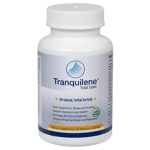There is a good chance that if you are reading this you may be struggling with some form of mental illness. After all, 350 million people throughout the world suffer from depression. But what if we told that these feelings are not all in your head but in your gut?
The mind-gut connection dates back centuries. Over 2,000 years ago, Greek philosopher Hippocrates famously stated, “All disease begins in the gut.” Dubbed “The Father of Medicine,” perhaps Hippocrates was onto something?
 Speaking of fathers, many point to mental illness as being passed down by genetics. While that may be true, a lot has changed since our great-great-great-great grandparents started cultivating food. Perhaps the change in the foods changed their systems, which altered ours as well.
Speaking of fathers, many point to mental illness as being passed down by genetics. While that may be true, a lot has changed since our great-great-great-great grandparents started cultivating food. Perhaps the change in the foods changed their systems, which altered ours as well.
However, we can break the cycle by switching up what we put on our plates. In turn, we can pass on better genetics to our future family members. So, let’s take a look at the mind-gut connection and what you can do to create a healthier bond between the two.
Feeding the Second Brain
A gut feeling is more than a cute catchphrase. Your gut truly is instinctual. It’s as if the gut has a mind of its own. Maybe that’s because it does?
Many scientists have dubbed the gut “the second brain.” The reason why is because the gut plays home to thousands of strains of bacteria. This area of the body is called the microbiome.
 Within the microbiome lies a network of neurons known as the enteric nervous system (ENS). This is an army of 100 million nerves that line the gut. The ENS is considered the “second brain” because structurally it resembles the central nervous system (CNS), which is home to the “first brain.” Both the CNS and ENS are developed by the same tissue and contain many chemical parallels. This is the literal mind-gut connection.
Within the microbiome lies a network of neurons known as the enteric nervous system (ENS). This is an army of 100 million nerves that line the gut. The ENS is considered the “second brain” because structurally it resembles the central nervous system (CNS), which is home to the “first brain.” Both the CNS and ENS are developed by the same tissue and contain many chemical parallels. This is the literal mind-gut connection.
Mind-Gut Connection Equals Happiness
What makes us feel “happy” is the production of hormones and neurotransmitters. These are signals that send messages to the brain. While most of these interactions take place within the CNS, the ENS is the greatest producer of the neurotransmitter known as serotonin. This is the hormone responsible for our perception of happiness, which in turns leads us feeling less stressed, anxious or depressed.
 When we are prescribed antidepressants, they act as selective serotonin reuptake inhibitors (SSRIs). When neurons in the brain want to communicate happiness to another neuron, it releases serotonin. In order to send another message, the original neuron most take back (or reuptake) the serotonin. The job of SSRIs is to halt this reuptake process and make serotonin more readily available.
When we are prescribed antidepressants, they act as selective serotonin reuptake inhibitors (SSRIs). When neurons in the brain want to communicate happiness to another neuron, it releases serotonin. In order to send another message, the original neuron most take back (or reuptake) the serotonin. The job of SSRIs is to halt this reuptake process and make serotonin more readily available.
The Potential Danger of Antidepressants
While antidepressants may prove effective, they also may come with their share of side effects. Antidepressants may result in:
- Fogginess
- Sexual abnormalities
- Loss of emotion
- Upset stomach
- Dry mouth
- Constipation
- Weight Gain
- Insomnia
While it sufficed for other members of your family, antidepressants may not be the answer for you. That is what makes the mind-gut connection so pivotal. We need to nourish our second brain so that it can produce more serotonin naturally.
 However, this isn’t as easy as it sounds. Our diets have hindered the production of serotonin in the gut. This is especially true in the west. That is why many turn to the quick fix of antidepressants, side effects and all. With that being said, you can develop a stronger mind-gut connection and potentially avoid taking medication to treat your mental illness by making a change in your diet and supplementing with natural herbal remedies, such as Tranquilene.
However, this isn’t as easy as it sounds. Our diets have hindered the production of serotonin in the gut. This is especially true in the west. That is why many turn to the quick fix of antidepressants, side effects and all. With that being said, you can develop a stronger mind-gut connection and potentially avoid taking medication to treat your mental illness by making a change in your diet and supplementing with natural herbal remedies, such as Tranquilene.
You Are What You Eat
“Let thy medicine be thy food.” This is another famous quote from the Father of Medicine. Sure, food tastes great. However, it’s more important than that. We use food so that our body can break down the nutrients and turn them into glucose for energy.
However, with the dawn of the industrial revolution the foods we eat have changed. Fast foods full of additives are on the rise. Processed foods are pumped with preservatives. Baked goods are packed with artificial ingredients. Vegetables are treated with pesticides. Animals are injected with hormones.
In turn, our gut microbiota has changed. We are eating garbage, and now we feel like garbage.
Many studies have linked:
- Artificial food colors to ADHD
- Plastic bottles to male infertility
- Pesticide exposure to childhood cancer
- Growth hormones in animals to human cancer
- Artificial sweeteners to diabetes
Changing the foods that our ancestors ate has changed the way we feel. It is no coincidence that depression, cardiovascular disease and obesity are all on the rise. The common bond here is the mind-gut connection.
How to Improve the Mind-Gut Connection
As foreign substances such as pesticides, added hormones, artificial sweeteners, dye colors, and refined sugars enter our system, the body has a hard time breaking them down. Eventually, these sugars will harden in the arteries and cause a backup.
As a result, inflammations will grow in the body. As Hippocrates hypothesized, inflammations are the route of all diseases. In a study on the mind-gut connection, Dr. Joseph Hibbeln deducted, “You would logically assume that if diet impacts the health of the heart, the health of the liver, the health of the fat tissues, then diet should impact the brain.”
 Hibbeln and a group conducted a meta-analysis with 6,665 patients. They found those with a diet rich in omega-3 fatty acids saw a vast improvement in their depressive episodes. That is because omega-3 fatty acids have strong anti-inflammatory properties.
Hibbeln and a group conducted a meta-analysis with 6,665 patients. They found those with a diet rich in omega-3 fatty acids saw a vast improvement in their depressive episodes. That is because omega-3 fatty acids have strong anti-inflammatory properties.
You know which diet is rich in omega-3 fatty acids? The Mediterranean diet. Centered around fish, olives, oils, and other polyunsaturated fat-rich foods, there’s no coincidence why studies have shown that following a Mediterranean diet may help prolong your life. This research further establishes the mind-gut connection.
 In addition to changing your diet, taking natural supplements such as Tranquility Labs’ Turmeric Curcumin 1000, reduces inflammation, CogniDHA Omega-3 Fish Oil, improves brain function and cognitive ability, and Olive Leaf Extract with 20% Oleuropein supports heart and immune health and accelerates the positive effects of the Mediterranean Diet within the body.
In addition to changing your diet, taking natural supplements such as Tranquility Labs’ Turmeric Curcumin 1000, reduces inflammation, CogniDHA Omega-3 Fish Oil, improves brain function and cognitive ability, and Olive Leaf Extract with 20% Oleuropein supports heart and immune health and accelerates the positive effects of the Mediterranean Diet within the body.
Eating for a Stronger Mind-Gut Connection
If disease begins in the gut and the goal is to keep inflammations from popping up, then the key to strengthening your mind-gut connection is to incorporate foods with anti-inflammatory properties into your diet.
For starters, keep an eye out for foods with an orange or yellow hue. These are anti-inflammatory must-haves. Just like there are different chemical components in our bodies that give one person blue eyes and another green, there’s different compounds in foods that give them their distinct color.
Therefore anti-inflammatory rich foods include:
- Ginger
- Turmeric
- Sweet potato
- Pineapple
- Egg yolk
- Garlic
However, there is more than just yellow and orange foods that can improve your overall mental health. Protein rich foods also contain numerous amino acids that are pivotal for optimal brain functioning. You just need the right protein.
 Western diets consume far too much fatty protein. Due to the amount of red meat people consume in their diet, they become full and don’t eat their leafy greens and whole grains. Without fiber from these abandoned foods, the fatty meats clog up the system and cloud the mind-gut connection.
Western diets consume far too much fatty protein. Due to the amount of red meat people consume in their diet, they become full and don’t eat their leafy greens and whole grains. Without fiber from these abandoned foods, the fatty meats clog up the system and cloud the mind-gut connection.
Therefore, you want to eat lean proteins with a sufficient amount of fiber. This means more:
- Fish
- Polyunsaturated oils (safflower, olive, avocado, grapeseed)
- Legumes/beans
- Broccoli
- Grass-fed poultry
- Soy
- Avocados
- Nuts
- Seeds
These foods also stimulate new development of neurons within the hippocampus. This is the area of the CNS that is responsible for regulating our mood, such as producing more serotonin.
Lastly, you want probiotics. These are living bacteria, and they interact with other bacteria in your microbiome. Foods that contain probiotics include:
- Yogurt
- Kefir
- Kimchi
- Pickles
- Sauerkraut
- Tempeh
- Dark chocolate
- Raw dairy
- Apple cider vinegar
- Miso soup
- Kombucha
Make the Mind-Gut Connection
Battling mental illness can make you feel defeated. However, you can win. All it may take is making some changes on your plate. You should also consult your doctor if your symptoms of depression and anxiety persist.
Going back to basics just like the times of Hippocrates may be the answer to strengthening the mind-gut connection. Have you tried incorporating any of the aforementioned foods into your diet? What are some your mind-gut connection go-to’s for dinner? Share your recipes and thoughts below!





